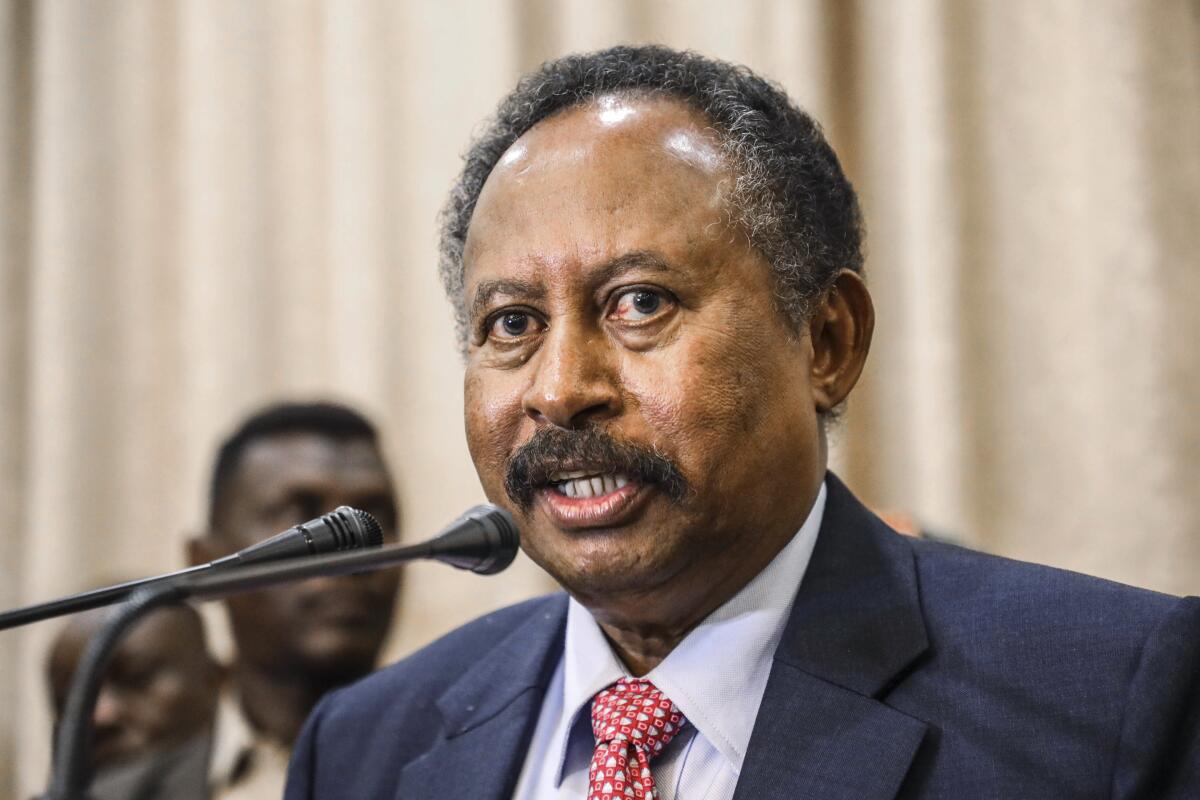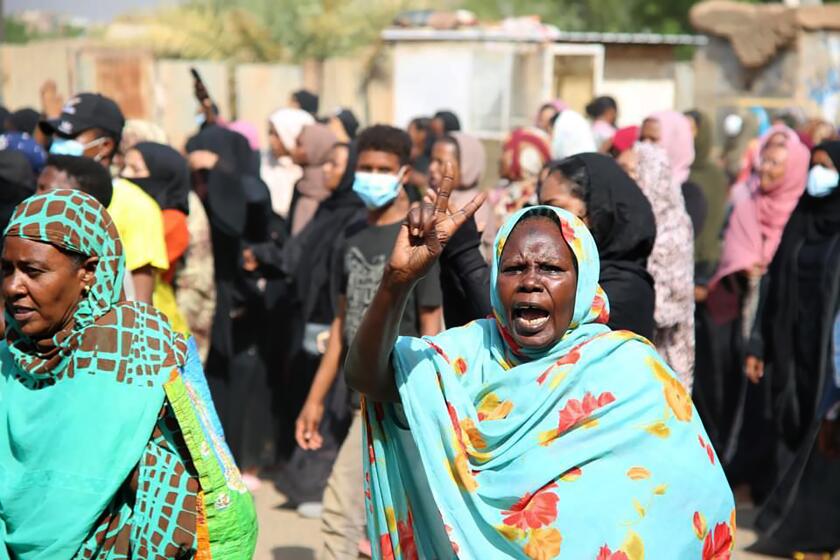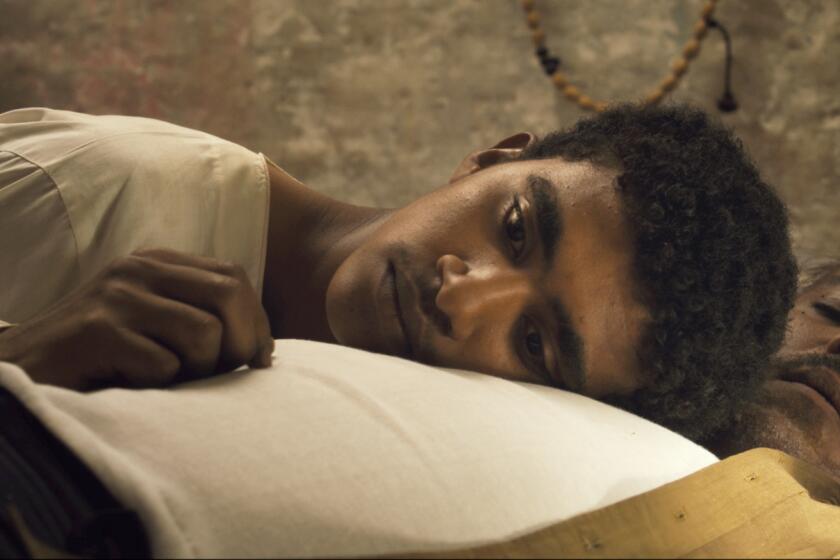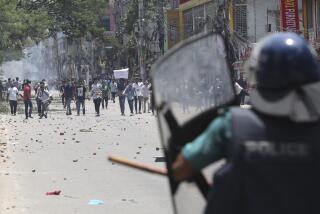Protesters block some roads, urge resistance to Sudan’s military coup

- Share via
CAIRO — Pro-democracy protesters blocked some roads in Sudan’s capital with makeshift barricades and burning tires Tuesday, a day after the military seized power in a swift coup widely denounced by the international community.
The prime minister and other senior officials in the transitional government who were arrested Monday by the military continued to be held at a military camp outside Khartoum, the capital.
The military takeover threatened to derail Sudan’s fragile transition to democracy, which had been underway for the past two years. The United Nations Security Council is to discuss the situation in a closed-door meeting Tuesday.
Western governments condemned the coup and called for the release of Prime Minister Abdalla Hamdok and other officials. The Biden administration announced the suspension of $700 million in emergency assistance to Sudan.
Protesters called for a mass march Saturday to press demands for a return to civilian rule.
The Sudanese military seized power Monday, more than two years after a popular uprising forced the overthrow of longtime autocrat Omar Bashir. In response, Sudanese flooded the streets of Khartoum and elsewhere in the country in protest. At least four people were killed and more than 80 were wounded when security forces opened fire on protesters in Khartoum, according to the Sudan Doctors’ Committee.
The military takeover in Sudan threatens to wreck the country’s fragile transition to democracy after the ouster of longtime autocrat Omar Bashir.
Gen. Abdel-Fattah Burhan, the top military official in Sudan, dissolved the Hamdok government and the Sovereign Council, a joint military and civilian body created soon after Bashir’s ouster to run the country. He now heads a military council, which he said would rule Sudan until elections in July 2023.
Burhan blamed quarrels and divisions among political factions for the military takeover, alleging that such divisions threatened the integrity of the country. However, the coup comes less than a month before Burhan would have had to hand the leadership of the Sovereign Council to a civilian, a step that would have decreased the military’s hold on power.
The general said he was serious about holding elections on schedule. But 19 months ahead of the vote, it is not clear if the military is willing to release the grip it has had for decades.
The coup came after weeks of mounting tensions between the military and the civilian component of the government over the course and the pace of Sudan’s transition to democracy. The African nation is linked by language and culture to the Arab world.
For the first time in its history, Sudan has a submission for the Academy Awards
Some protesters remained in the streets Tuesday morning in Khartoum and its twin city of Omdurman, with many roads barricaded and blocked by burning tires.
Troops from the military and the feared Rapid Support Forces patrolled Khartoum neighborhoods overnight, chasing protesters. Human Rights Watch said forces used live ammunition against protesters.
U.S. Secretary of State Antony J. Blinken called for an immediate halt to violence against protesters and for the restoration of internet services. He said the U.S. was coordinating with partners to “chart a common diplomatic approach to address these actions and to prevent them from leading to further instability in Sudan and the region.”
The Sudanese Professionals’ Assn., a group of unions that were behind the uprising against Bashir, urged people to go on strike and engage in civil disobedience.
Separately, the Sudan Popular Liberation Movement–North, the country’s main rebel group, denounced the coup and called for people to take to the streets.
More to Read
Sign up for Essential California
The most important California stories and recommendations in your inbox every morning.
You may occasionally receive promotional content from the Los Angeles Times.












